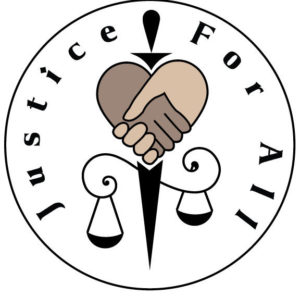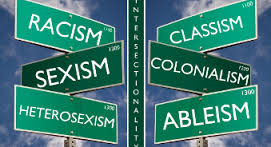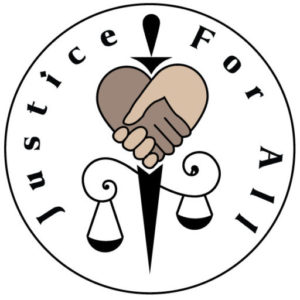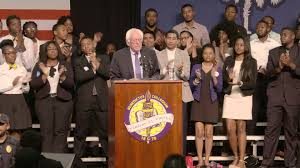Justice For All
Testimony to Vermont House Judiciary Committee – 8 February, 2017 9:00 AM
Statehouse Room 11
Recognizing the chair and members of the committee who are charged with the responsibility of creating a framework that keeps us all safe, thank you for an opportunity to appear before you today.
I appear before you questioning where we are focusing our attention today. I ask that the committee consider the origin of Fair and Impartial Policing, which was Act 134 ,2012; “Racial Disparities in the Criminal Justice System” (Later Act 193, 2014) The legislative research of Act 2012 introduced empirical data outlining the existence of these disparities in the criminal justice system here in Vermont. Reports from Dr. Stephanie Sequino of UVM, Dr. Jack McDevett of North Eastern University and Ashley Nellis (The Color of Justice) of the Sentencing Project further support this fact while suggesting that the problem in Vermont has worsened over the past five years.
Much progress has been made with addressing racial disparities in the law enforcement system and advancements can be made with funding and oversight. I respectfully implore the committee to return to the focus of addressing racial disparities across the entire criminal justice system. Further, we must acknowledge the work that must be done to address institutionalized racism in employment, education, housing, health services and the political process.
Echoing the testimony of Migrant Justice, Vermont ACLU, The Peace and Justice Center and the Human Rights Commission, we feel strongly that funding and oversight are required for effective implementation of a systematic approach that seeks to mitigate racial disparities in the criminal justice system. As the Racial Justice Reform Omnibus Bill is introduced this session, we ask that strong consideration be given to the Racial Justice Oversight Board to carry out this work.
Justice For All further submits the following observations and recommendations for the Committee’s consideration:
Refine legislative impact review process to protect marginalized communities. Legislative Racial Impact Assessment Process (existing and emerging legislation).
- Require racial impact review of legislation
- Establish commission to review current statutes for racial impact
- Appoint/fund Human Rights commission to direct
- Identify applicable statutes
Enhance policy and training requirements for increased public safety and accountability
- Policy
- Establish authority responsible for determining policy compliance and updating and maintaining model police
- Amend Act 147, 2016 and Title 20, Ch 151, 2336
- Implement “Model Use of Force Policy” for all law enforcement
- Implement “Model Implicit Bias Policy” for all justice system workers
- Require public posting by each law enforcement agencies policies
- Establish authority responsible for determining policy compliance and updating and maintaining model police
- Training
- Expedite implementation of FIPs training as per Act 147, 2016
- Implement Use of Force and De-escalation in-service training requirements for all law enforcement personnel
- Amend Act 147, 2016 and Title 20, Ch 151, 2336
- Amend 20 V.S.A. § 2358
- Include FIPs, Use of Force and De-escalation as requirements for annual in-service training VCJTC Rule 13
- Require annual public posting on the progress of law enforcement training.
- Implement recurring Implicit Bias training for all who work in the justice system.
- Funding
- Promulgation, reporting and monitoring
- Identify statutes that pertain to all justice workers training.
- Require annual public posting of training of all justice system personnel reporting, by department.
Expand Data Collection and reporting and provide appropriate accountability and oversight to provide accurate, meaningful and timely metrics. – Amend Act 147, 2016 and Title 20, Ch 151, 2336
- Expand Data Collection and reporting by law enforcement from “traffic stops” to “all police community responses” (VSA 20 2366 (e) 1)
- Define specific agency responsible for collecting, and making data available ALL law enforcement data (VSA 20 2366 (e) 2)
- Expand reporting on training and policy to the remainder of the justice agencies
- Oversight organization should be funded to collect, analyze and report
- Expand continuous sentencing and incarceration data collection to other the justice agencies with the intent on identifying bias and measuring progress in the following areas:
- the initial investigation by law enforcement;
- the decision to lodge or release on citation
- the prosecutor’s sentencing recommendation;
- the defendant’s decision whether to exercise the right to a trial by jury;
- the plea negotiation process;
- the judge’s bail decision
- the prosecutor’s bail recommendation
- the decision by prosecutors to file a particular charge
- the judge’s sentencing decision as to a jail or probationary sentence;
- the department of corrections’ programming decision, supervision practices, and its recommendation to release on parole; and
- the parole board’s decision whether to grant parole
Extend enhanced citizens oversight to all law enforcement agencies to enable transparency and legitimacy.
- Reorganize the State Police Advisory Commission 20 VSA, Ch 113§ 1922§ 1923. Internal Investigation
- Re: Presidents Commission on 21st Century Policing (Pillar 2)
- National Association for Civilian Oversight
- Progress in other states
- Establish a standing Independent Prosecutor assist the States Attorneys and the Attorney General in creating transparency, maintaining accountability and eliminating perceptions of bias
- Identify Statutes that pertain
- Consider one office
- Expedite addressing the professional regulation of all law enforcement in the state as soon as possible.
- Prioritize the emerging legislation
- Review SPAC composition and IA statutes
- Clarify citizen-reporting processes – Law Enforcement Advisory Board (Act 134, 2012) – “The board shall examine how individuals make complaints to law enforcement and suggest, on or before December 15, 2012, to the senate and house committees on judiciary what procedures should exist to file a complaint with law enforcement and the human rights commission”.
- Board responded that they did not have sufficient time to address
- Recommend that this be revisited to ensure a statewide process exists
Justice For All is confident that this committee will act swiftly and decisively on ensuring the safety of all Vermonters. We are grateful for your willingness to partner on this vitally important matter and appreciate your leadership.
Please accept the following supporting documentation:
- Memo submitted to various legislators January 15, 2016 last year surrounding implementation of Fair and Impartial Policing
- Legislative Findings – Act 134, 2012
- Chiefs Statements on Race Data Collection, May, 2012
- Statement on Race Data Collection from Greater Burlington Multicultural Resource Center & VT Multi-cultural Alliance for Democracy
- Report from Ashley Nellis of The Sentencing Project – “The Color of Justice
Respectfully,
Mark A. Hughes,
Co-founder and Executive Director
Justice For All
















